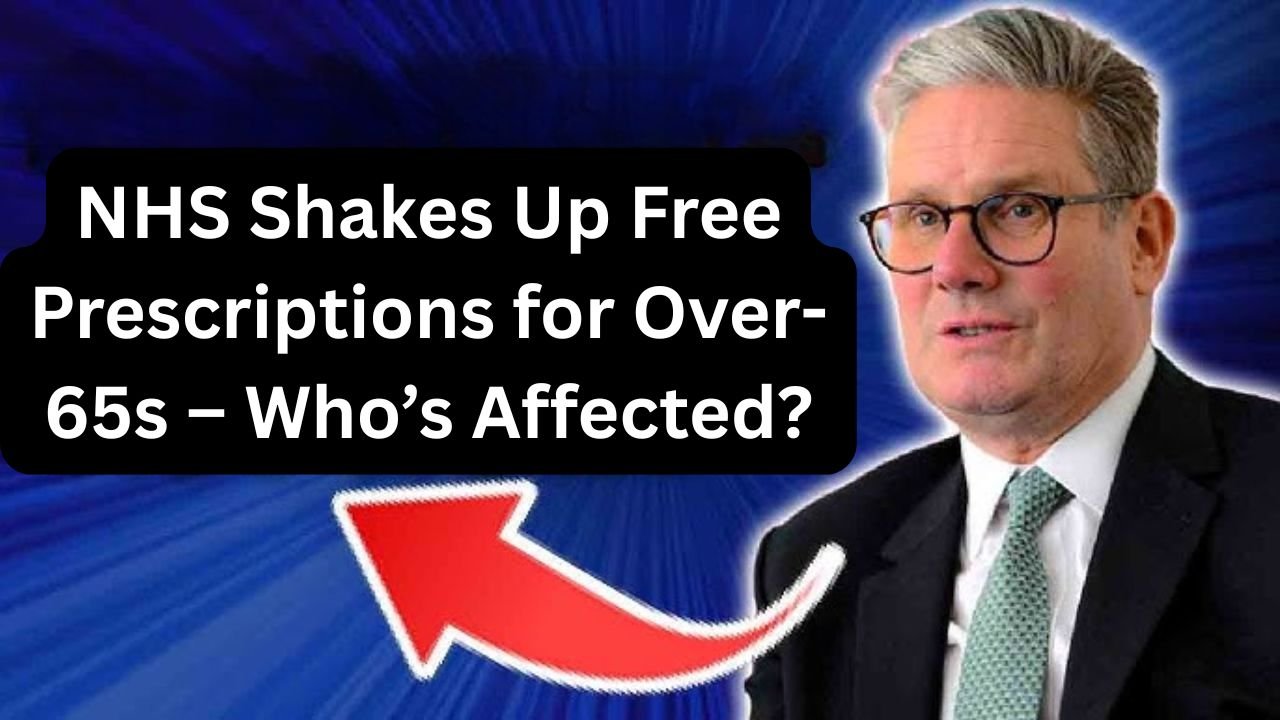Big changes are coming for older people in England as the NHS considers raising the age for free prescriptions from 60 to 66. This possible shake-up, aimed at saving the NHS over £1 billion in five years, has sparked worry among pensioners already hit by cuts to winter fuel payments. The government says no final decision has been made, but the plan could affect millions of 60- to 65-year-olds who rely on free medicines. Here’s what you need to know about who might lose out and what options are available.
Why Is This Happening?
The NHS is under pressure to cut costs and boost funding. One idea is to align the free prescription age with the state pension age, which is now 66. This change could bring in £225 million a year, according to government estimates, helping to fund better healthcare services. But it’s caused a stir, with pensioners and charities calling it a “medicines tax” that could hurt those with long-term illnesses like arthritis or heart disease. The government tried a similar plan in 2021 but backed off after backlash, citing the cost-of-living crisis. Now, Labour ministers are keeping the idea on the table, though they say no changes are confirmed yet.
Who Loses Free Prescriptions?
If the plan goes ahead, people aged 60 to 65 in England would have to pay for prescriptions, currently £9.90 per item. Those 66 and older would still get free medicines. The change wouldn’t apply in Scotland or Wales, where prescriptions are free for everyone. People with certain medical conditions, like diabetes or cancer, or those on low incomes, can still get free prescriptions through exemptions. About 89% of prescriptions in England are already free due to these exemptions, but 60- to 65-year-olds without them could face costs of £50 to £100 a year. Here’s a quick look:
| Group | Prescription Status |
|---|---|
| Age 60–65 | May pay £9.90 per item if plan goes ahead |
| Age 66+ | Free prescriptions continue |
| Medical Exemptions | Free for conditions like diabetes, epilepsy |
| Low Income | Free via NHS Low Income Scheme |
| Prepayment Certificate (PPC) | Caps costs at £32.05 (3 months) or £114.50 (year) |
How Would This Affect Pensioners?
Paying for prescriptions could hit 60- to 65-year-olds hard, especially those on fixed incomes. Charities warn that some might skip medicines to save money, risking worse health and more NHS costs later. For example, someone with arthritis might need multiple prescriptions a month, racking up big bills. The NHS Low Income Scheme can help those struggling, and prepayment certificates (PPCs) cap costs at about £2 a week for unlimited medicines. But many don’t know about these options, and applying can feel complicated. The government says it’s looking at ways to ease the impact, but pensioners are still nervous.
What Can You Do If Affected?
If you’re 60 to 65, there are ways to manage costs if free prescriptions end. Check if you qualify for the NHS Low Income Scheme, which looks at your income and savings to offer free or cheaper medicines. You can also buy a PPC, which costs £114.50 a year or £32.05 for three months, covering all your prescriptions. Apply online or by phone through the NHS Business Services Authority. If you have a medical condition like Parkinson’s or thyroid issues, you might already qualify for free prescriptions—check the full list on the NHS website. Acting early can save you money and stress.
What’s Next for the NHS Plan?
No final decision has been made, and Health Minister Karin Smyth says there are “no current plans” to change exemptions. But the government hasn’t ruled out the idea, and talks are ongoing. Pensioners and campaigners are pushing back, worried about the impact on health and wallets. The government plans to publish more details soon, so keep an eye on updates. For now, if you’re 60 or over, your prescriptions are still free—but it’s worth planning ahead in case things change.
This possible NHS crackdown has pensioners on edge, but options like PPCs and exemptions can help soften the blow. Stay informed and check your eligibility to make sure you’re ready if the rules shift in 2025.




